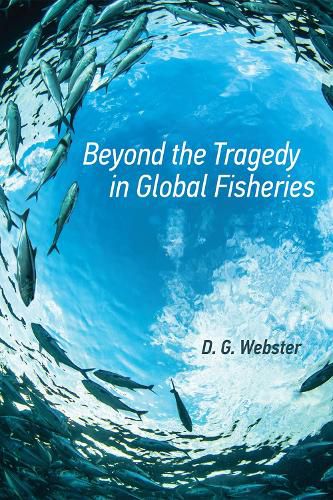Readings Newsletter
Become a Readings Member to make your shopping experience even easier.
Sign in or sign up for free!
You’re not far away from qualifying for FREE standard shipping within Australia
You’ve qualified for FREE standard shipping within Australia
The cart is loading…






An analysis of how responsive governance has shaped the evolution of global fisheries in cyclical patterns of depletion and rebuilding dubbed the management treadmill.
The oceans are heavily overfished, and the greatest challenges to effective fisheries management are not technical but political and economic. In this book, D. G. Webster describes how the political economy of fisheries has evolved and highlights patterns that are linked to sustainable transitions in specific fisheries. Grounded in the concept of responsive governance, Webster’s interdisciplinary analysis goes beyond the conventional view of the tragedy of the commons. Using her Action Cycle/Structural Context framework, she maps long-running patterns that cycle between depletion and rebuilding in a process that she terms the management treadmill.
Webster documents the management treadmill in settings that range from small coastal fishing communities to international fisheries that span entire oceans. She identifies the profit disconnect, in which economic incentives are out of sync with sustainable use, and the power disconnect, in which those who experience the costs of overexploitation are politically marginalized. She examines how these disconnects shaped the economics of expansion and documents how political systems failed to prevent related cycles of serial resource depletion. Webster also traces the increasing use of restrictive management in response to worsening fisheries crises and the emergence of new, noncommercial interests that demand greater management but also generate substantial conflict. She finds that the management treadmill is speeding up with population growth and economic development, and so concludes that sustainable fisheries can only exist within a sustainable global economic system.
$9.00 standard shipping within Australia
FREE standard shipping within Australia for orders over $100.00
Express & International shipping calculated at checkout
An analysis of how responsive governance has shaped the evolution of global fisheries in cyclical patterns of depletion and rebuilding dubbed the management treadmill.
The oceans are heavily overfished, and the greatest challenges to effective fisheries management are not technical but political and economic. In this book, D. G. Webster describes how the political economy of fisheries has evolved and highlights patterns that are linked to sustainable transitions in specific fisheries. Grounded in the concept of responsive governance, Webster’s interdisciplinary analysis goes beyond the conventional view of the tragedy of the commons. Using her Action Cycle/Structural Context framework, she maps long-running patterns that cycle between depletion and rebuilding in a process that she terms the management treadmill.
Webster documents the management treadmill in settings that range from small coastal fishing communities to international fisheries that span entire oceans. She identifies the profit disconnect, in which economic incentives are out of sync with sustainable use, and the power disconnect, in which those who experience the costs of overexploitation are politically marginalized. She examines how these disconnects shaped the economics of expansion and documents how political systems failed to prevent related cycles of serial resource depletion. Webster also traces the increasing use of restrictive management in response to worsening fisheries crises and the emergence of new, noncommercial interests that demand greater management but also generate substantial conflict. She finds that the management treadmill is speeding up with population growth and economic development, and so concludes that sustainable fisheries can only exist within a sustainable global economic system.